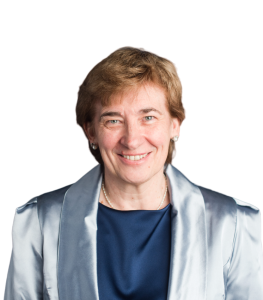Project Description

RESEARCH AREAS:
- Mutagenesis & Genome Evolution
Environmental Mutagenesis; Public Health Policy
- Machine learning applied to genome classification; Artificial Intelligence
CONTACT:
- Biology Department BGS Building
Western Science Centre, Room 333
London, Ontario, Canada
N6A 5B7
KATHLEEN HILL
Associate Professor,
Departments of Biology and Computer Science, Western University
Research in Kathleen Hill’s laboratory is focused on discovering mutational signatures and identifying mutational mechanisms relevant to development and ageing, phenotypic diversity, fitness and gene and genome evolution. Our discoveries are significant in correcting misconceptions about spontaneous mutations. Our mutation research provides important baselines of spontaneous mutations for future assessments of environmental exposures and compromises to genome integrity. We explore the impacts of environmental mutagens. Microplastics are a focus of our current research. Our technical and analytical expertise is in mutation detection and mutation analysis using single-gene assays and genomic methods.
Current areas of research include analysis of copy number variants and elucidation of the mutational mechanisms contributing to the deletions and duplications that make up copy number variation so important to gene dosage and many phenotypes. Trainees also examine the frequency, nature and mutational mechanisms of de novo mutations arising in different tissues during development. We are fascinated by the patterns in the distribution of mutations across the landscape of the genome and we are focused on understanding mutation clustering.
A growing interest in our collaborative research team is the study of genome representations, genome composition and the classification or clustering of genomes by taxonomy, environment and disease type. We are keen to apply our analytical tools to the study of synthetic genomes.
Radford, JM, Chen, D*, Chernyshova AM, Taylor C*, Guoth AW, Wu T, Hill KA, Thompson GJ. Genetic diversity in termite population. Special Issue of Insects: ‘The Evolution of Insect Societies’ 13(3): 224.
Chen D,* Randhawa GS, Soltysiak MPM,* de Souza CPE, Kari L, Singh SM, Hill KA. (2021). SomaticSiMu: A mutational signature simulator. Bioinformatics. doi: https://doi.org/10.1101/2021.09.30.462618.
Yang X**, Vessey K, Hill KA, Tian L. (2021). Colonization of Brachypodium distachyon by Gluconacetobacter diazotrophicus and its effect on plant growth promotion. Canadian Journal of Plant Science. DOI: 10.1139/cjps-2020-0143
Aria PM, Alipour F, Hill KA, Kari L. (2021). DeLUCS: Deep Learning for Unsupervised Classification of DNA Sequences. PLoS ONE; https://doi.org/10.1371/journal.pone.0261531.
Yang X**, Austin R, Hill KA, Tian L. (2021). Differential gene expression of Brachypodium distachyon roots colonized by Gluconacetobacter diazotrophicus and the role of BdCESA8 in the colonization. Molecular Plant-Microbe Interactions. 2021 Oct;34(10):1143-1156.
doi: 10.1094/MPMI-06-20-0170-R. Epub 2021 Oct 28.
Charnetski K,* Randhawa GS, Chen D,* De Souza CPE, Kari L, Hill KA. (2021). Investigating genomic signatures in influenza A viruses using supervised machine learning: A case study on an emergent H1N1 strain [The Global Undergraduate Awards: Regional Award]. The Undergraduate Library. https://gua.soutron.net/Portal/Default/en-GB/RecordView/Index/1945.
Singh SM, Castellani CA, Hill KA. (2020). Postzygotic somatic mutation in the human brain expand the threshold liability model of Schizophrenia. Front. Psychiatry, 22 October 2020. https://doi.org/10.3389/fpsyt.2020.587162.
Randhawa GS, Soltysiak MPM*, El Roz H*, de Souza CPE, Hill KA, Kari L. (2020). Machine learning using intrinsic genomic signatures for rapid classification of novel pathogens: COVID-19 case study. PLoS One. 2020 Apr 24;15(4):e0232391. doi: 10.1371/journal.pone.0232391. eCollection 2020.
Randhawa GS, Hill KA, Kari L. (2020). MLDSP-GUI: An alignment-free standalone tool with an interactive graphical user interface for DNA sequence comparison and analysis. Bioinformatics. 36(7): 2258–2259.
Randhawa GS, Hill KA, Kari L. (2019). ML-DSP: Machine Learning with Digital Signal Processing for ultrafast, accurate, and scalable genome classification at all taxonomic levels bioRxiv 394932; doi: https://doi.org/10.1101/394932 BMC Genomics. 20(267).
Belontz S, Corcoran P, Davis H, Hill KA, Jazvac K, Robertson K, Wood K. (2019). Shoring: Embracing an Interdisciplinary Approach to Plastics Pollution Awareness and Action. The Society for Diffusion of Useful Knowledge, Blackwood Gallery. May 2019(04): 8-12.
Belontz SL, Corcoran PL, Davis H, Hill KA, Jazvac K, Robertson K, Wood K. Embracing an interdisciplinary approach to plastics pollution awareness and action. Ambio. 2018 Nov 17. doi: 10.1007/s13280-018-1126-8.
Luo B*, Edge AK*, Toelg C, Turley EA, Dean CB, Hill KA, Kulperger RJ. 2018. Spatial statistical tools for genome-wide mutation cluster detection under a microarray probe sampling system. PLoS One. 2018 Sep 25;13(9):e0204156. doi: 10.1371/journal.pone.0204156. eCollection 2018.
trainees supervised* and co-supervised**
- Genome Organization, Mutagenesis and DNA Repair
- Seminars in Genetics
- Principles in Human Genetics
